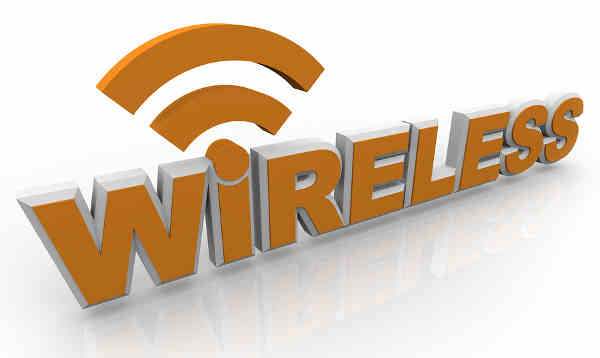
How to Connect Your Phone to the Internet
All smart phones are able to connect to the internet, but you do have a choice of the method that you use to connect. Being online with your mobile means that you can be in constant contact through email, you can use apps like Facebook, look for directions, even shop online. You can also use web based services like Skype or Viber to send free messages or make free calls.
The method that you use to connect to the internet really depends on you and the kind of phone that you have. Today we’re talking about the pros and cons of WiFi, 3g phones and 4g phones, so that you can choose the best way to get your phone online. So, before you connect, read on and find out what your options are.
All about WiFi…
Nearly all smart phones can connect through WiFi, though you should check your model. There are some benefits to using WiFi for your mobile internet connection. Speeds are pretty fast – faster than 3g – though not quite as fast as 4g. You can often find free WiFi hot spots, so you won’t need to pay. And connecting to WiFi will not count towards your monthly data limit on your phone contract, nor will it subtract credit from your pay as you go phone.
But that doesn’t mean that WiFi is the ideal solution. Your phone will probably not connect to WiFi by default; you’ll need to go into the settings menu and switch WiFi on, and then find a network. Not all WiFi networks are free so you may need to enter credit card information and pay for using some of them. And even the networks that are free, particularly those in cafes and restaurants, will often be password protected, so you’ll need to get the code (which will mean being a customer of that cafe or restaurant).
Finally, you will need to find a WiFi signal. Hot spots are not everywhere, though most urban areas are pretty well covered, and you might have to travel around for a while before you can find a network. Most people choose to use WiFi wherever possible, but still have a data plan for a 3g or 4g network, simply because it’s not convenient to find a WiFi hot spot all the time.
3g Phones and the Internet…
3g phones are the standard and all modern smart phones will be able to connect to a 3g network. Before you can connect to 3g though, you will need to go to a mobile operator and get either a pay as you go SIM card or sign a mobile contract that includes a data plan. You will always have to pay to use 3g, either through your monthly phone bill or by subtracting credit from your pay as you go account.
The main benefit of using 3g is that it’s just so widely available. Nearly all areas in the UK, other than extremely isolated locations, can connect to mobile internet through a 3g signal. All mobile operators offer 3g data plans, so there’s lots of competition which keeps prices relatively low.
The availability and affordability of 3g is what makes many people choose this as their default way to connect to the internet.
The main disadvantage of 3g is speed. 3g connections are slow, far slower than your average home broadband connection, for example. This means that although a 3g connection is fine for emailing, using Facebook and getting directions, it’s not really great for anything else. Even downloading app updates can take a long time on 3g.
Many people choose to update their software only over a home WiFi connection, because it’s so much faster: Having said that, 3g is still the most popular choice for people wanting mobile internet. And the fact that it’s the standard for phones means that you won’t need to spend a lot on getting a phone with a special internet connection, such as 4g.
Find out what a 3g phone can do here.
Connecting Using 4g…
4g is the newest kind of mobile internet connection. Again, you will need to go through a mobile operator, and you will need a specific 4g plan, not just a regular data plan. You will also need a phone that’s 4g capable, and these are usually top end phones that are a little more expensive.
The benefit of connecting to the internet over 4g is that it is much faster than any other method.
4g is around ten times faster than 3g, and is far faster than WiFi as well. This means that you can use your mobile for more intensive tasks, like streaming video smoothly, playing high end online games, and downloading and opening web pages much faster.
As tempting as super-fast internet may be though, there are some problems with connecting to the internet over 4g. The main disadvantage of 4g is availability. The UK does not have complete 4g coverage, and there are many locations that can’t connect to 4g even if they want to because there is no network signal.
Many mobile operators don’t yet offer specific 4g data plans, and many of those that do don’t get good 4g speeds. There is really only one operator right now that gets good 4g speeds, and that’s EE. The problem with this is that because there isn’t much competition, prices are high. A 4g data plan with EE is going to cost you around three times as much as a regular 3g data plan.
If you’re thinking about getting 4g, enticed by the idea of a faster mobile internet service, then you’re going to have to do some research. You’ll need to check and see if your operator offers a good 4g package with good speeds, and if they don’t you’ll need to be willing to switch operators to one who does. And then you’re going to need to check coverage in your area to see if there’s even a 4g network available to you. Finally, you’ll need a 4g capable phone.
Gizmodo helps you answer the question Do You Really Need a 4g Phone Now?
Find the best mobile plan
Here are some sites that allow you to compare or search for the best plan for your area:
- Wirefly – U.S.
- Best Buy – U.S.
- Deal News – U.S.
- Bill Shrink – U.S.
- Phone Arena – U.S.
- Uswitch – U.K.












